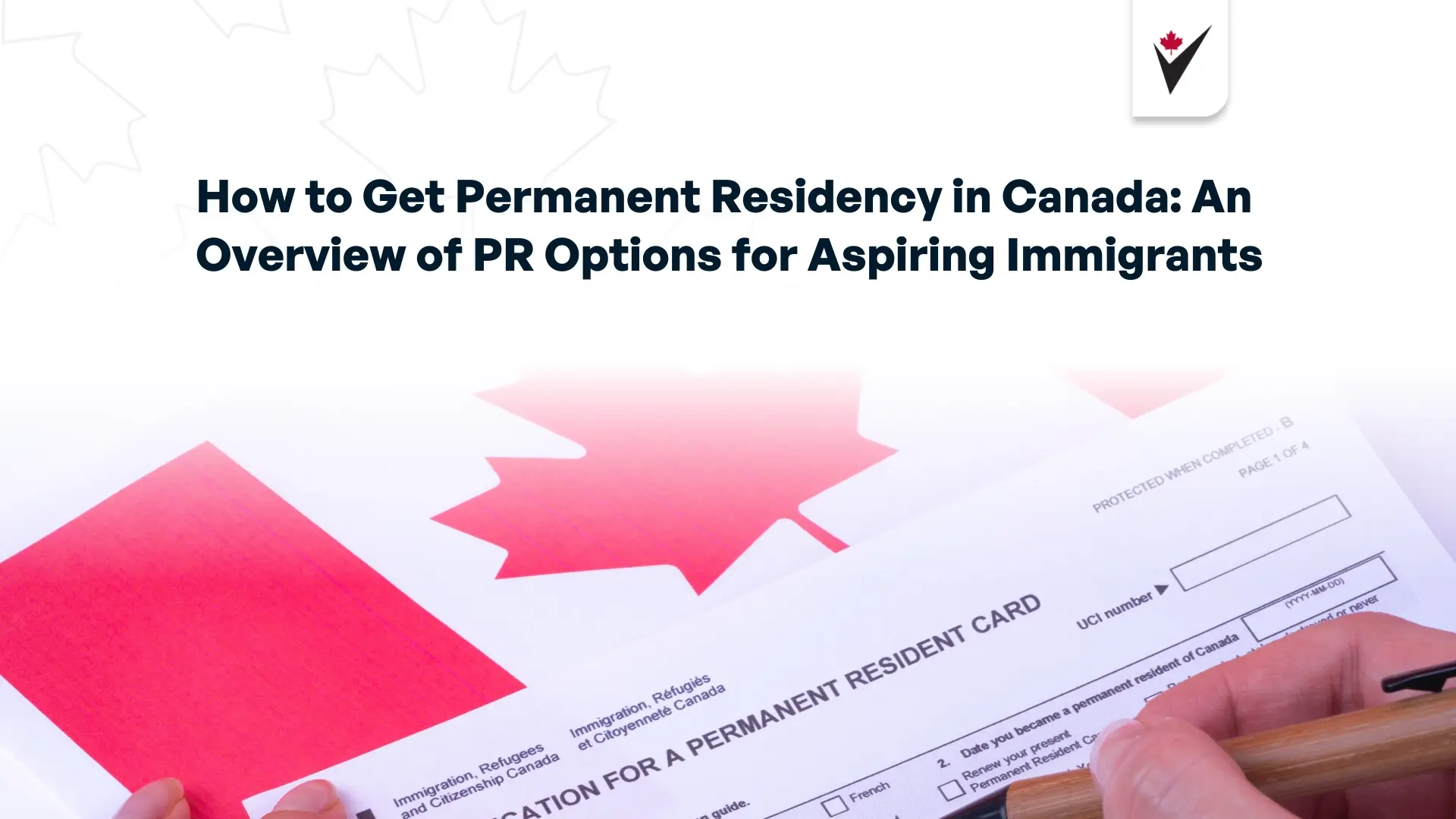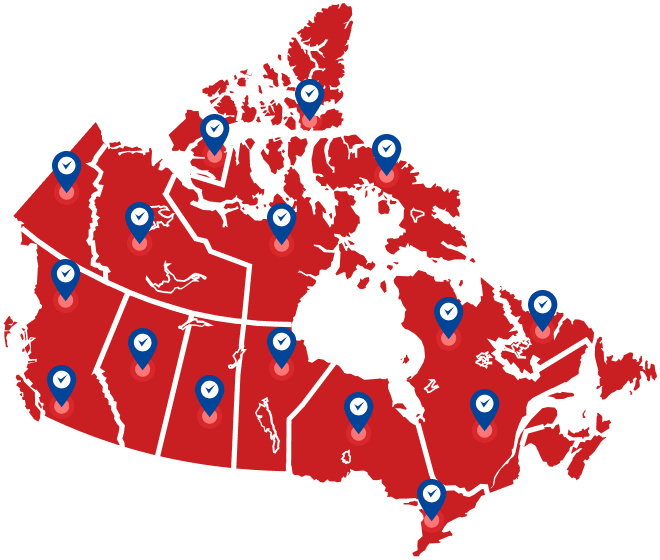- Study
- Study in Canada
Student Visa Consultant
Get the expert assistance you need to study in Canada as an international student.
Regulated Canadian Immigration Consultants (RCIC-IRB)
Proudly regulated by and in good standing with the College of Immigration and Citizenship Consultants (CICC). Jamie Dowla, registration #: R507233.

Realize Your Canadian Education Goals
With top-ranked universities, attractive post-study work options, and established pathways to immigration, Canada is one of the premier destinations for international students.
At CanDo Immigration, we help aspiring students make their Canadian study dreams a reality with tailored immigration advice and assistance throughout the entire study permit application process.

Canadian Study Permit Assistance From Application to Approval
From initial study permit application to post-graduation strategies, CanDo Immigration is here to help you study and smoothly launch your career in Canada to realize your long-term Canadian immigration goals.
Study Permit
If you’re an international student wishing to study at a designated learning institution in Canada, CanDo Immigration can guide you through every step of your study permit process.
Student Direct Stream (SDS)
CanDo offers specialized assistance for students from eligible countries aiming to expedite their study permit process through the Student Direct Stream (SDS). Our team will ensure your application is complete, accurate, and presented in the best possible light.
Post-Graduate Work Permit (PGWP)
If you’re an international student who has graduated from an eligible Canadian institution, CanDo offers personalized support at every step of the PGWP process. We will ensure your smooth transition from student to the Canadian workforce.
Meet Juliana, Your Study Permit Expert!
Juliana is our dedicated educational consultant with a diverse marketing, education, and project management background.
With two bachelor’s degrees in Communication and Marketing and Architecture from Fortaleza, Brazil, Juliana furthered her education with a Diploma in Marketing Management in Vancouver (BCIT), Canada.
Based in Vancouver, Juliana leverages her expertise to assist clients in navigating Canada's academic system with precision and care.

Our Study Permit Success Through the Eyes of Our Clients
Why Trust CanDo With Your Canadian Student Permit Application
Successful Student Visa Applications
Our immigration consultants have demonstrated experience and expertise in navigating the intricate Canadian education and immigration systems. It’s our mission to deliver positive outcomes for aspiring international students wanting to study in Canada.
We’re Here For You Every Step of the Way
With CanDo Immigration, you have a dedicated partner committed to facilitating every aspect of your Canadian study permit application, ensuring a smooth transition to your new life in Canada.
A Tailored Approach to Your Student Visa Application
Our specialized Canada study visa consultants collaborate directly with you to tailor study programs based on your education and immigration goals. We will consider factors such as your educational background, nationality, and finances to maximize your chances of a successful study permit application.
Guiding You with Transparency and Trust
Our team of dedicated study permit consulting experts is committed to leading applicants through each phase of the process with unwavering honesty and integrity. We keep the lines of communication open, guaranteeing you're thoroughly briefed at every stage.
Canadian Immigration News, Tips, and Resources

How to Get Permanent Residency in Canada: An Overview of PR Options for Aspiring Immigrants
For many aspiring immigrants, the dream of building a new life in Canada begins with securing permanent residency. Canada offers a welcoming environment, a high quality of life, and a wealth of
read more
How Long Does it Take to Get Canada Permanent Residency: 5 Factors That Can Affect Your Processing Time
If you’re seeking permanent residency in Canada, one of the most pressing questions you may have is: how long does it take to get Canada permanent residency? The waiting period can be a significant
read more
Top-Ranked Canadian Universities for International Students
Every year, Canada welcomes hundreds of thousands of international students. When you study in Canada, you invest in your future. In this article, we’ll explain why Canada is an ideal destination for
read moreFind Your Dedicated Study Visa Consultant Wherever You Are Located
We assist clients worldwide with study permit applications. See the cities below to find your regulated Canadian immigration consultant.

Speak to an International Student Specialist at CanDo Immigration.
Let CanDo Immigration’s study visa experts help you through every step of your application.
Frequently Asked Questions
What is the difference between a study visa and a study permit?
A study visa is a travel document that allows you to enter Canada for the purpose of studying. It is not the same as a study permit but rather a necessary component for individuals from visa-required countries.
A study permit is an official authorization issued by the Canadian government that allows foreign nationals to study in Canada. The permit is issued at the Canadian port of entry when the student lands in Canada. It is a crucial document for those planning to pursue academic programs exceeding six months.
Who needs a study permit to study in Canada?
The following people need to have a study permit for Canada:
- Foreign nationals enrolling in academic, professional, vocational, or training programs at Canadian colleges and universities.
- Individuals studying for more than six months or if the program is shorter than six months and they are required to work in Canada as part of their program of study.
- Individuals studying at a Designated Learning Institution (DLI), an educational institution that is designated to host international students.
Exceptions to the study permit requirement include those taking an English or French short-term course for less than six months, a short-term course of general interest or self-improvement, a distance learning program, or an audited course. These individuals are not required to have a study permit to enter Canada. However, depending on their country of origin, they may still require a travel visa to enter Canada.
What are the requirements for applying for a Canadian study permit?
The following are required to apply for a study permit for Canada:
- Letter of Acceptance (LOA): The student must have been accepted at a Designated Learning Institution (DLI) to take an academic, professional, vocational or training program of study.
- Proof of funds: The student must provide proof of funds to support themselves and accompanying family members, if applicable, in Canada in the first year, including tuition fees, living expenses, and returning transportation to their home country.
- Criminal records: The student should have no criminal records and provide a police certificate if from a country for which the certificate is required.
- Health check: International students must be in good health and provide medical exam results if from a country for which the medical exam is required.
- Proof of ties to home country: International students must prove to the immigration officer that they will leave Canada when their study permit expires.
Can I work in Canada as an international student?
Yes, in most cases, international students are allowed to work in Canada while studying.
Immigration Canada will specify on the student’s study permit whether the student can work in Canada.
In general, international students can work:
- After starting their study program, on or off the school campus
- As a co-op student or intern, when their study program includes work experience as part of its curriculum
- After graduation, if eligible for a Post Graduate Work Permit